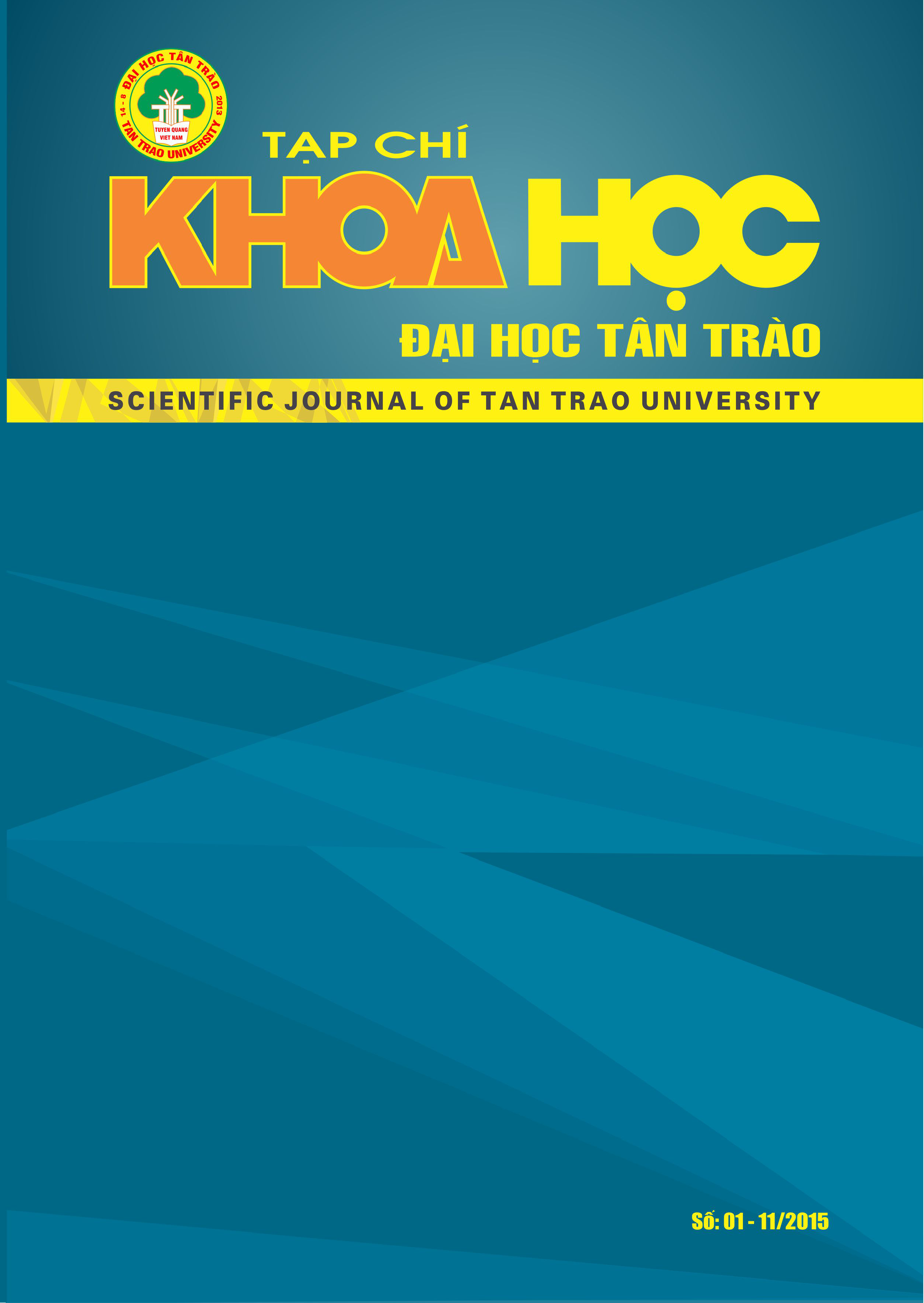ĐÁNH GIÁ HỌC SINH TIỂU HỌC THEO HƯỚNG TIẾP CẬN NĂNG LỰC
DOI:
https://doi.org/10.51453/2354-1431/2015/74Từ khóa:
đánh giá, há»c sinh tiểu há»c, tiếp cáºn năng lá»±c, tá»± há»c, tá»± giáo dục.Tóm tắt
Vấn đề có tính thời sự và cấp bách đặt ra trong tất cả các cuộc hội thảo gần đây về đổi căn bản toàn diện quá trình dạy học, đó là tiêu chí đánh giá học sinh khi chuyển từ hướng tiếp cận nội dung sang hướng tiếp cận năng lực; chuyển từ quá trình dạy học sang quá trình tự học; tự giáo dục như thế nào. Rất nhiều câu hỏi được đạt ra từ các cấp độ: Người quản lý; người trực tiếp giảng dạy; người nghiên cứu giáo dục; phụ huynh và người học. Với các yêu cầu bức thiết hiện nay, xu hướng đánh giá cần phát huy tốt 3 chức năng quan trọng đó là : chức năng điều khiển, điều chỉnh quá trình dạy học; chức năng phát triển và chức năng giáo dục. Muốn vậy cần tập trung vào hai phương diện: Đánh giá về phẩm chất và đánh giá về năng lực thông qua việc đánh giá sản phẩm của các hoạt động hình thành kiến thức và rèn luyện kỹ năng theo chuẩn của từng môn học và các hoạt động giáo dục cụ thể.
Tải xuống
Tài liệu tham khảo
1. Đặng Tự Ân - Nguyên Phó vụ trưởng Vụ Tiểu học (5/2013 tại Tam Đảo), Báo cáo triển khai mô hình trường học mới VNEN tại Việt Nam.
2. Nguyễn Công Khanh (8/2014 tại Hà Nội), “Đổi mới kiểm tra đánh giá học sinh phổ thông theo cách tiếp cận năng lực”, Hội thảo quốc gia về xây dựng chương trình giáp dục phổ thông.
3. Trần Ngọc Lan, Đề cương bài giảng chuyên đề tương đương: “Về kỹ thuật viết các dạng câu trắc nghiệm và ra đề kiểm tra đánh giá kết quả học tập môn Toán ở tiểu học”.
4. Lê Tiến Thành - Nguyên Vụ trưởng Vụ Tiểu học (tháng 5/2013 tại Tam Đảo), Báo cáo định hướng nâng cao năng lực quản lý lớp học trong mô hình trường học mới VNEN.
5. Tài liệu hội thảo (lưu hành nội bộ 12/2014), Xây dựng chương trình giáo dục phổ thông theo định hướng phát triển năng lực học sinh.
Tải xuống
Đã Xuất bản
Cách trích dẫn
Số
Chuyên mục
Giấy phép

Tác phẩm này được cấp phép theo Giấy phép Quốc tế Creative Commons Attribution-ShareAlike 4.0 .
Bài báo được xuất bản ở Tạp chí Khoa học Đại học Tân Trào được cấp phép theo giấy phép Ghi công - Chia sẻ tương tự 4.0 Quốc tế (CC BY-SA). Theo đó, các tác giả khác có thể sao chép, chuyển đổi hay phân phối lại các bài báo này với mục đích hợp pháp trên mọi phương tiện, với điều kiện họ trích dẫn tác giả, Tạp chí Khoa học Đại học Tân Trào và đường link đến bản quyền; nêu rõ các thay đổi đã thực hiện và các nghiên cứu đăng lại được tiến hành theo cùng một bản quyền.
Bản quyền bài báo thuộc về các tác giả, không hạn chế số lượng. Tạp chí Khoa học Tân Trào được cấp giấy phép không độc quyền để xuất bản bài báo với tư cách nhà xuất bản nguồn, kèm theo quyền thương mại để in các bài báo cung cấp cho các thư viện và cá nhân.
Mặc dù các điều khoản của giấy phép CC BY-SA không dành cho các tác giả (với tư cách là người giữ bản quyền của bài báo, họ không bị hạn chế về quyền hạn), khi gửi bài tới Tạp chí Khoa học Đại học Tân Trào, tác giả cần đáp ứng quyền của độc giả, và cần cấp quyền cho bên thứ 3 sử dụng bài báo của họ trong phạm vi của giấy phép.






